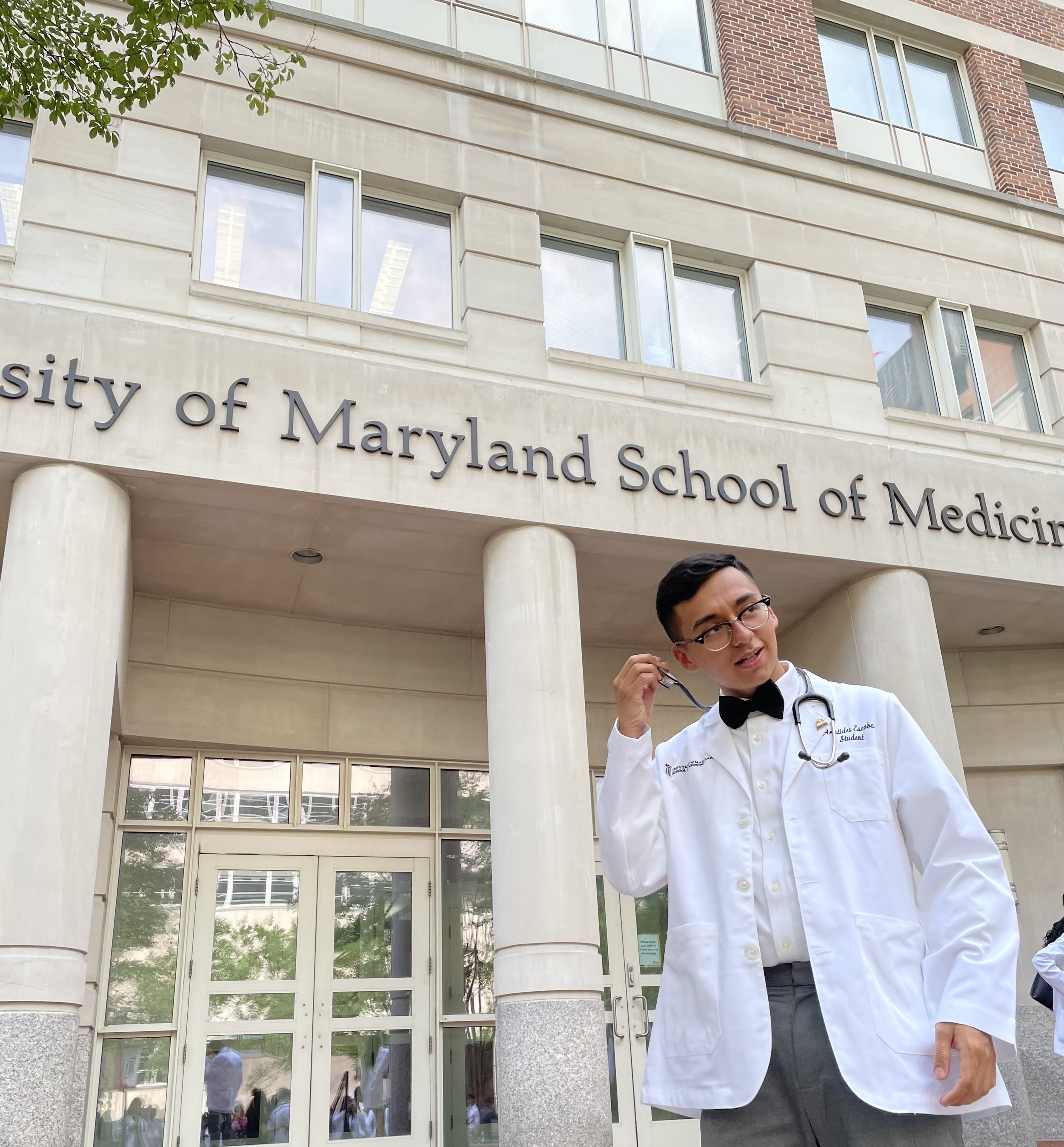Beyond the Fraternity: Aristides Escobar
/Class of 2020
NYU Phi Delta Epsilon Alpha Chi Class
In the vibrant world of pre-medicine, where aspirations take root, one of our alumni, Aristides Escobar, stands out as a beacon of perseverance and excellence. He joined NYU Phi Delta Epsilon back in 2020 as a member of the Alpha Chi Class. Today, Aristides is forging ahead in his third year of medical school at the University of Maryland School of Medicine, embodying the spirit of dedication and resilience that defines our fraternity’s legacy.
Reflecting on his journey, Aristides shares how his experience in New York City prepared him well for the diverse challenges he faces today. “When they say if you can make it here [in New York City], you can make it anywhere,” he notes. “That’s really what I felt like going from New York City to any other city. You’ll simulate pretty well.” This perspective has broadened his understanding of teamwork and the interconnectedness of different systems, both in medicine and in life.
During the interview, Aristides also emphasized some key lessons he learned along the way: one of them being the importance of balance and self-care. “There is definitely a stress graph where students have a maximal performance,” he observes. He advises finding that perfect balance amidst the whirlwind of activities and events in a city like New York, which is continuously happening every single day. “Anchoring yourself and trusting your ego to become in touch with your mind, spirit, and physical self” is crucial for moving forward in medical school.
Another lesson he shared during the interview was how “memorization is a quick-out” and “learning is lifelong.” During his first year of medical school, Aristides focused primarily on memorization: memorizing for the test just for the sake of receiving a proficient grade. However, he states that this approach was not sustainable as more and more content was continuously being added, with the expectation to know almost everything at all times. With this in mind, he drew attention to the pivotal nature of “[taking] the time to learn the actual subject” and that “there isn't a quick way to become a doctor. Becoming a doctor is a learning process that you will engage in every day, so don't just get buzzwords, don't just regurgitate, because then you're never gonna critically think.”
Going into medical school, Aristides did carry many worries, one of his primary concerns being debt. As a first-generation Latino college student, he was apprehensive about the financial burden. “I always had this thought of drowning when my family comes from a certain background,” he admits. However, after consulting with financial advisors about the debt process, such as public service loan forgiveness, he finally found a balance. “You start seeing like, okay, I can enjoy life while also accruing debt,” he says. According to the AAMC, the average student debt after medical school was around $207,000, and medical school costs are rising every year, so it is no doubt that concerns like the one Aristides faced are not unique (“How Much Does It Cost to Attend Medical School? Here’s a Breakdown”). Aristides hopes that students like himself “educate [themselves] more on those fears that [they] have, and know that those fears that [they] have are fears that we've had for generations.”
“You're not alone out there. Find those people that can help you,” he says.
That’s where PhiDE comes in. He says, “Knowing that if you need to talk to someone about a certain thing, you always have them.” Even after graduation, he explains how in touch he is with his PhiDE community, who are also pursuing their medical journey despite the differences in age and stages of medical school, from a medical school intern to a second-year resident to an official pediatric cardiac fellow. With PhiDE, he believes that “you have this whole network of people that you can continually reach out to and be like, hey, I need your help.” In his eyes, having this line of momentum with PhiDE members above him who can tell him what to expect for the future, as well as PhiDE members below him who are still “nurturing that furnace” to become the doctor of their dreams, is invaluable. “So it’s like this kind of stream just building on itself,” he concludes.
In essence, Aristides’ journey is a testament to the value of support networks, continuous learning, and the pursuit of balance, reflecting the enduring spirit of Phi Delta Epsilon.
“How Much Does It Cost to Attend Medical School? Here’s a Breakdown.” Students & Residents, students-residents.aamc.org/premed-navigator/how-much-does-it-cost-attend-medical-school-here-s-breakdown#:~:text=In%202020%2C%20the%20debt%20of,associated%20with%20being%20a%20student. Accessed 6 Aug. 2024.



